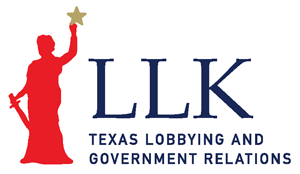T-minus 17 days to the end of the session and alcohol to-go is here to stay. This past week we celebrated Small Business Week, and there have been major movements on legislation ranging from future pandemic procedures to permitless carry to bail reform. Hang in there – this wild ride is almost over!
Powering Texas
While cyberattacks affected a major U.S. pipeline on the East Coast, our own Texas legislators continued ongoing work to secure and improve the state power grid. The Electric Reliability Council of Texas (ERCOT) announced late last week its annual summer outlook. Although ERCOT expects record-breaking demand, the council has reassured Texans there is no cause for concern – generators are online and the chance of February’s events repeating is incredibly low, according to the report. ERCOT also stated its intention to visit nearly 30 “selected power plants across the state to review summer weatherization plans.” The new leaders of the Public Utility Commission (PUC) met last Thursday for the first time. During the meeting, the commission analyzed scarcity pricing, voting to change the formula for assessing prices that could have surged them above the $9,000 per megawatt hour cap during the winter storm. Commissioner McAdams remarked, “I believe we are setting a lower cap for this year and cleaning up the disruptive force of the fuel recovery factor…that had such devastating consequences in February.”
A Plan for the Future
The House voted Tuesday to approve HB 3, the Pandemic Response Act, which outlines a plan to give the legislature a stronger voice in the state’s response during a future pandemic. The bill would establish a twelve-member Pandemic Disaster Legislative Oversight Committee, composed of the lieutenant governor and House speaker as joint-chairs and a number of other committee chairs. It would also require the entire legislature to meet after 120 of days of a declared pandemic. Certainly, the governor would retain the authority to issue orders to close businesses to any extent, to mandate face coverings, and establish other limits. However, such orders would require approved renewal after 30 days. The legislation goes one step further to prohibit local governments from closing businesses or limiting maximum occupancies and establishes protections for most businesses from civil suits related to the pandemic. The bill has been received in the Senate and awaits action.
Covid-19 in Texas
This week, the Pfizer vaccine was authorized for 12-15 year olds. Previously authorized for ages 16 and above, the vaccine’s expanded eligibility opens up the next group of Texans able to receive their inoculations. Texas is now filling orders for the vaccine instead of allocating its supply on its own. At the same time, the federal government will distribute a new round of funding, and Texas is set to receive $15.8 billion in coronavirus relief aid. The funds can be used to hire public sector workers; to support mental health programs, small businesses, and housing programs; and even toward projects like expanding broadband access, a top legislative priority for this session.
Election Integrity
The House passed SB 7 last week after hours of debate and dozens of amendments. Because the legislation has already passed the Senate once, it will most likely go to a conference committee. Once a final version is agreed upon by the committee, the bill would go back to both chambers for a final vote and with no amendments allowed. On the other hand, the Senate could concur with the House version of the bill and pass it on to Governor Abbott to be signed into law. The current version of the bill would create an online system for voters to track mail-in ballots, grant poll watchers additional protections, enhance criminal penalties for certain offenses, and require those with a felony conviction to be advised about how it impacts their voting rights. Admittedly, the House and Senate version do differ, and it won’t be until after the legislation goes to a conference committee that we’ll get to see the final draft.
Constitutional Carry
The Firearm Carry Act was pulled down by Representative Schaefer after Representative Turner of Tarrant raised a point of order regarding Senate amendments. Once the point of order was withdrawn, the bill was returned to the House Items Eligible Calendar. The House then refused to concur in the Senate amendments and requested a conference committee. The House appointed conferees are Representatives Schaefer (chair), White, Canales, Guillen, and Burrows. Much like our discussion on SB 7, the same fate awaits this piece of legislation and it could be some time before a final version is agreed upon by the conference committee.
Helpful Resources and Countdown
There are just 17 days left in the session. Friday, May 21 is the last day for the House to consider local House bills on the local and consent calendar on 2nd and 3rd reading. It is also the first day the Senate can consider bills and resolutions the first day they are posted on the Notice of Intent. Saturday, May 22 is the last day for House committees to report Senate bills and Senate Joint Resolutions. The last full week of May boasts a number of House and Senate calendar deadlines, and they’ll be here before you know it. This website provides another overview of important dates and deadlines this session.
For House and Senate calendars (these can change daily), refer to the link here.
For a complete schedule on upcoming House committee hearings, click here.
For a complete schedule on upcoming Senate committee hearings, click here.
For more information on bills filed and legislative details visit TLO.
Until next week,
Lara Laneri Keel
President, LLK, LLC.


